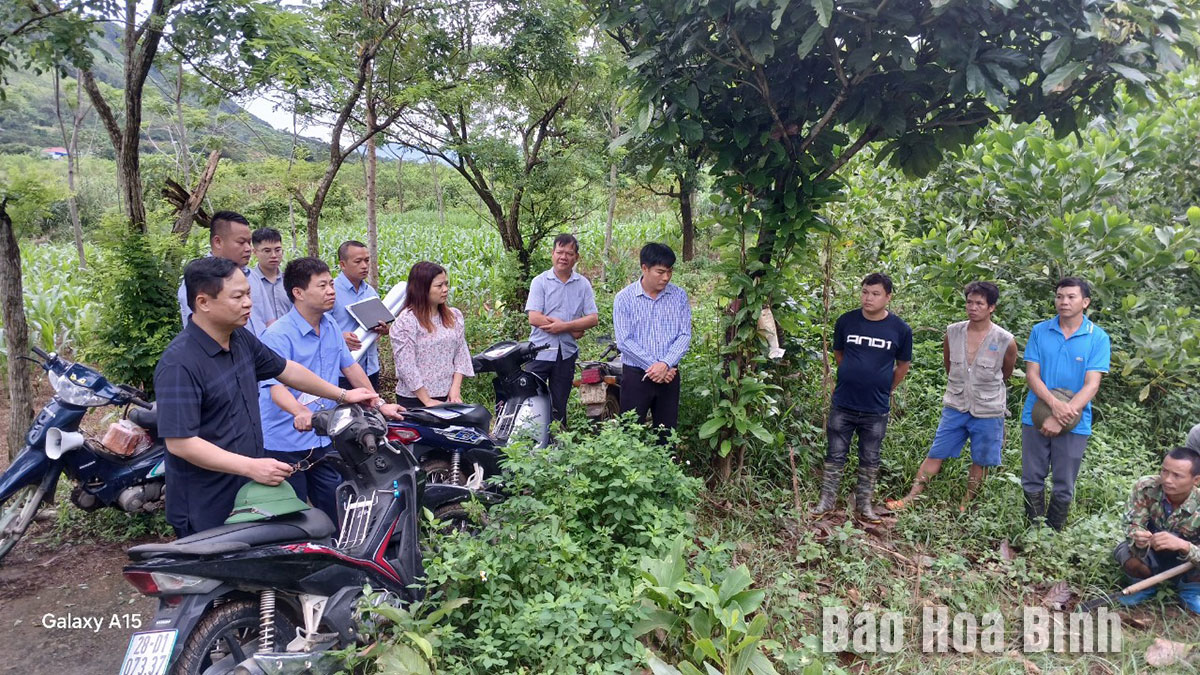



Leaders of the Party Committee and People’s Committee of Da Bac and the district’s steering committee for compensation and resettlement support encourage local residents to give space to the Hoa Binh-Moc Chau expressway project.
The Hoa Binh-Moc Chau expressway’s section crossing Hoa Binh has a length of 34km, with 21km passing Da Bac district’s Cao Son, Tien Phong, Tu Ly communes and Da Bac town.
To give space for the project, Da Bac has cleared 173.8 hectares of land. Defining ground clearance as the key stage ensuring the progress of the project, the district’s steering committee for compensation and resettlement support has set up a working group for the compensation and resettlement support for the Hoa Binh-Moc Chau expressway project led by a member of the district Party Committee and Vice Chairperson of the district People’s Committee. On a weekly basis, the group has evaluated the progress and directed measures to deal with arising difficulties and obstacles facing the work.
Particularly, the steering committee assigned the working group to countdown the time for the launch and clarify the remaining workload in site clearance to ensure its progress. The People’s Committee of the district has issued a handbook on site clearance and compensation, ensuring all officials and people are clear about these procedures.
Da Bac has also organised many direct dialogues with local residents to learn of their aspirations and expectations during the drafting of plans for compensation and site clearance. To date, the management board for construction investment and land fund development has completed the listing of land lots for clearance along 8km of the road with 568 plots covering 63 hectares.
Nguyen Thanh Tuan, Vice Chairman of the district People’s Committee, said that the committee has directed relevant agencies and units to promptly build plans on land prices and compensation for public listing. After collecting ideas about the plans, the committee will make the first approval on the plan for the area in the recovery announcement. For forest land and rice-farming land areas, the committee will closely coordinate with departments and sectors to complete procedures and documents for converting land use purposes.
Regarding the resettlement for affected residents, the district People’s Committee has directed departments and agencies to summarise proposals from households eligible for resettlement, then organise a dialogue with them to answer their questions.
Currently, 19 out of the 24 affected households in Da Bac town that are eligible to receive resettlement support have received compensation to settle down themselves, while all 15 others in Cao Son commune have also received compensations.